Artificial Intelligence is suddenly everywhere. New tools like ChatGPT, Dall-E, and Vall-E can create articles, art, and audio with the click of a button. They are changing how we view creativity, knowledge work, and the limits of technology.
But these trending AI tools are just a small part of the picture.
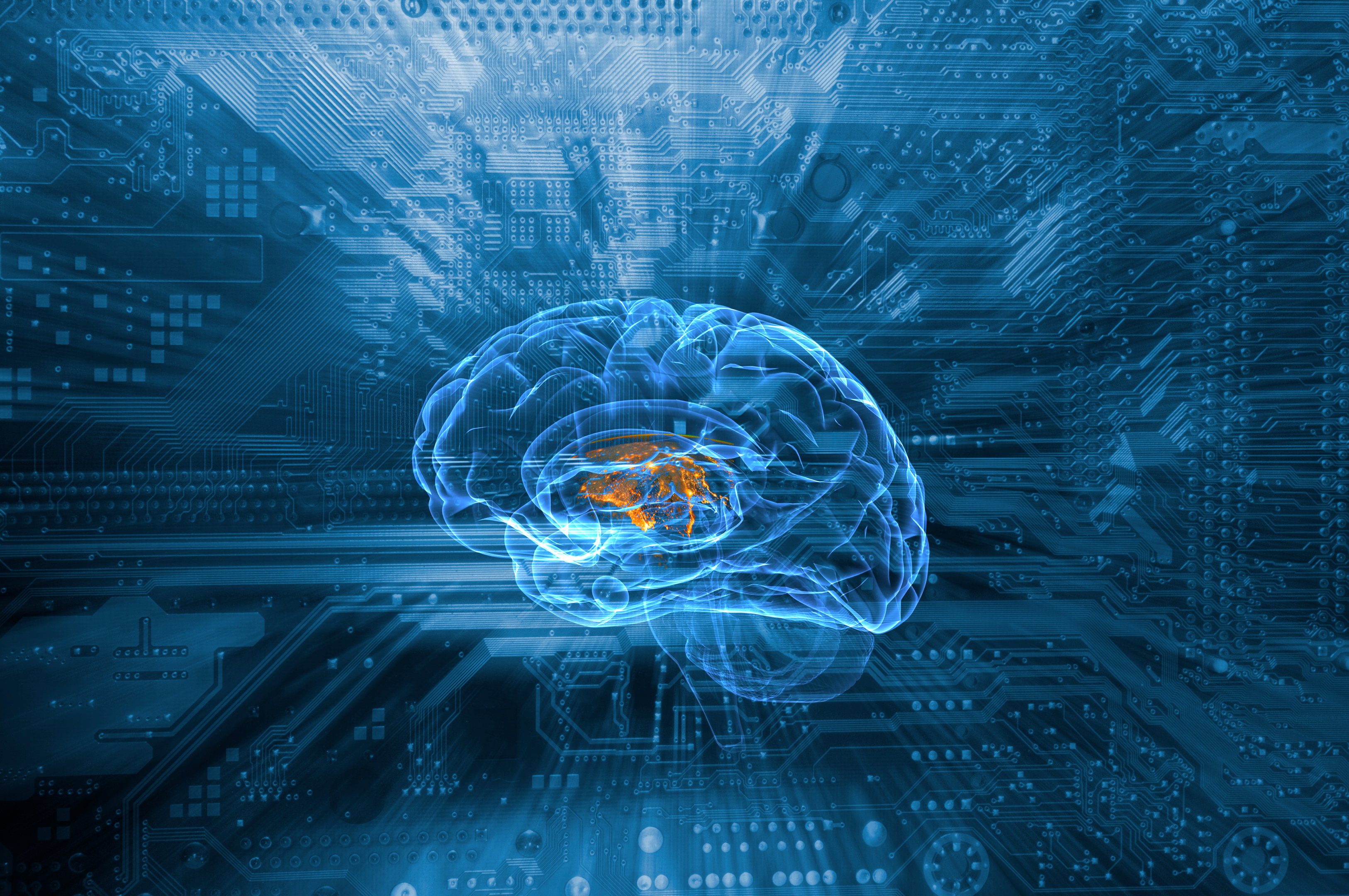
In the 2010s, Big Data accelerated companies into fast-paced innovation and growth. In the 2020s and beyond, AI-centric development is being discovered by industries across the globe as the next technological leap forward. And as it empowers leading-edge companies to produce the next generation of tech, hiring AI developers is becoming key to business success.
AI will add $13 trillion to the global economy by 2030, according to a recent study by McKinsey. That translates to a year-over-year increase of 1.2% of the entire globe’s GDP.
If you’re considering hiring an AI developer this year or are tasked with sourcing for one, our guide is here to help. It covers the full process: the state of AI hiring in 2023, AI developer titles, writing a compelling AI job description, AI sample resume, interview questions, and more.
Demand for AI Engineers in 2023 and beyond
Artificial Intelligence and Machine Learning have produced significant breakthroughs across industries from medicine to finance to transportation over the past few years. AI today can help write code, diagnose patients from MRI images, detect financial fraud, and direct autonomous vehicles.

Across the entire tech industry, AI and ML-based technologies are fundamentally redefining the data, infrastructure, and application ecosystem for various increasingly complex projects and technologies.
But the problem for companies is that AI is extremely complicated, and the talent pool of those qualified to perform state-of-the-art research and engineering is extremely small. In face of the field’s rapid expansion and the mainstreaming of AI, schools are struggling to train the number of AI and ML professionals needed.
With the shortage of AI talent predicted to persist over the next decade, many hiring and recruiting teams are finding it challenging to hire AI developers.
However, you can maximize your success with the right techniques — starting with understanding what an AI developer is and the nuances between the different types.
What do AI Developers do?
Some professionals in the AI field focus on researching, theorizing, and/or developing AI computer systems and applications that simulate human intelligence. However, many tech companies use AI to advance other projects — whether to automate processes or better process large-scale amounts of data. Typically, developers that work at these companies are strong programmers, first and foremost, with additional expertise in designing networks, tuning parameters, and selecting activation functions.

What does an AI development team look like?
A successful AI development team will generally incorporate the following elements.
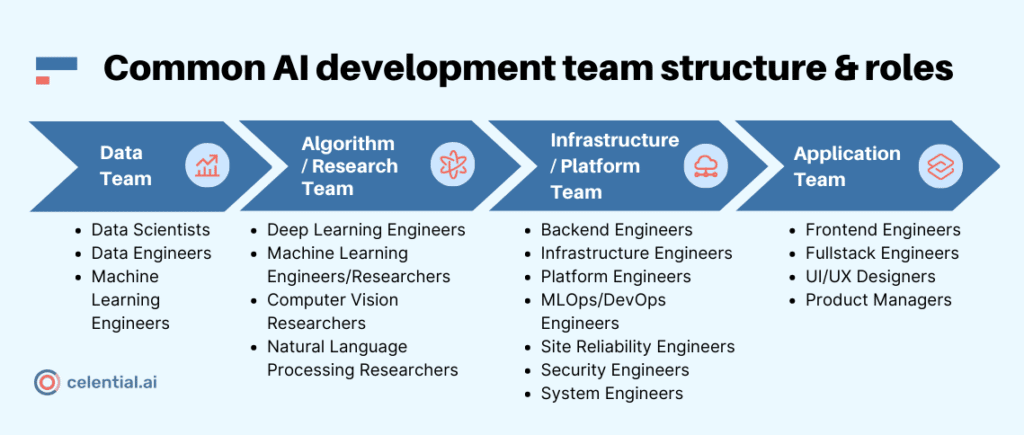
- Data Team: This team is responsible for ingesting, processing and analyzing the data. Typically, you’ll find Data Scientists, Data Engineers and Machine Learning Engineers on the Data Team.
- Algorithm/Research team: This team, consisting of Deep Learning and ML Engineers, drives the development of your AI’s foundation. As companies grow, they may add a Research Team to explore new ways of solving business problems by developing AI, staffed by computer vision, natural language processing, and general machine learning researchers familiar with state-of-the-art inference, interpretability, and prompt engineering.
- Infrastructure/Platform Team: These engineers are responsible for building, maintaining, and scaling the infrastructure underlying software products. Backend software engineers, Infrastructure engineers, Platform engineers, MLOps and DevOps engineers, Site Reliability Engineers, Security Engineers, and System Engineers are part of the infrastructure team.
- Application Team: This team creates your app or product that customers interact with. It consists of Frontend and Fullstack engineers, UI/UX designers, and Product Managers.
AI Developer skills
So what are the skills an AI developer needs to be successful at your company? Let’s take a look:
Artificial Intelligence and Machine Learning knowledge
As Artificial Intelligence is a complex and newly-emerging field, there are many types and subsets of AI. An AI developer needs to have a solid theoretical understanding of the landscape and their specialization in particular. Some types of AI and ML include:
- Deep Learning
Today, ML Engineers often employ Deep Learning or the creation of artificial neural networks to model and solve complex problems. These networks are inspired by the structure and function of the human brain and contain more layering, complexity, and abstraction than older machine learning models.
Deep Learning techniques include supervised, unsupervised, and reinforced learning to train deep neural networks on large amounts of data, allowing the networks to learn and improve independently. Some real-world examples of Deep Learning include Tesla’s auto-pilot system; Google, Spotify, and Amazon’s recommendation systems; and most recently, DallE and ChatGPT.
- Computer Vision
Computer Vision enables computers to “see”, or interpret and understand visual data such as images and videos. Computer Vision leverages large amounts of data to help computers understand images, recognize faces, track motion, and make sense of visual information.
- Natural Language Processing – Natural Language Understanding
Natural Language Processing (NLP) combines linguistics and coding to enable computers to understand, interpret and generate human language. Examples of Natural Language Processing include AI translation, email categorization, text-to-speech technologies, chatboxes and text sentiment analysis.

Generally, NLP is used to refer to the broader field. It can also be used to refer to the pre-processing of the text to transform unstructured data (language) into structured data for a machine to analyze. Conversely, NLU focuses on interpreting context, and intent and deriving meaning from the words.
If you’ve ever asked Siri to convert 10,000 won to dollars, used autocorrect to change the spelling of orfhid to orchid, or typed “time Paris” into Google to mean “What time is it in Paris right now,” you’ve used NLP.
Programming Languages
Most of an AI developer’s job is often traditional coding and data engineering. That means your number one priority should be looking for a strong engineer with coding skills in one or more of the following programming languages:
- Python is a widely-used, high-level programming language that is well-suited for ML development by its simplicity and consistency. It has a large number of libraries and frameworks for ML, such as TensorFlow, PyTorch, and scikit-learn, which makes it easy to implement ML models.
- Julia is a high-level programming language similar to Python, gaining in popularity in the AI/ML space.

- C/C++: are other popular choices. As they offer low-level control, C and C++ are often used for computationally intensive tasks or for building systems when performance is critical.
- Java/Scala is often used in enterprise applications, large-scale software development, and distributed systems. Java and Scala are associated with the Big Data Era and have less relevance to many AI applications today.
- Swift and Javascript are gaining in popularity as mobile languages for AI.
- R is a programming language and environment for statistical computing and visualization. It is widely used for data analysis and has several libraries and frameworks for ML, such as caret, mlr, and randomForest.
Expertise in the AI tech stack
Familiarity with AI technologies relevant to your company’s needs is also necessary when hiring AI engineers. Here are some popular tools, libraries, frameworks, and concepts to look out for:
| Expertise | Tech Stack |
| Deep Learning Frameworks/Libraries | Tensorflow (Keras), Pytorch, Jax, Caffee, MxNet, CNTK |
| Traditional ML Libraries | Scikit-learn, XGBoost/lightgbm, Vowpal-wabbit, etc. |
| NLP | Natural Language Toolkit (NLTK), spaCy, Gensim, CoreNLP, OpenNLP, Flair, UIMA, Huggingface, BERT, Transformers, Attentions, etc. |
| Computer Vision | OpenCV, scikit-image, SimpleCV, YOLO, Vision API, etc. |
| Algorithms | Supervised, unsupervised, semi-supervised, self-supervised and reinforcement learning. Active learning, transductive learning, transfer learning, adaptive learning, multi-task & multi-modal learning, federated learning & meta-learning, etc |
| ML model families | Neural Networks (ANN), Graphs, Trees, Generalized Linear Models (GLM), Kernel Machines |
| Big Data Technologies | Apache Spark, Storm, Hive, Kafka, Flink, Hadoop, Arrow, Iceberg |
| ML Infrastructure/Platform | Data Orchestration: MLFlow, Kubeflow, Airflow, Prefect and etc. Embedded/Mobile ML: Core ML, AI accelerators, FPGA/GPU/TPU/APU, 8bit, etc. |
| AI governance principles | Transparency, Explainability, Visibility, Fairness, Robustness, Safety, Integrity, etc. |
What is the role of AI developers in different industries?
Here are the most popular uses of AI across various industries:
Generative AI
- Text generation and chatboxes
- Image, artwork, video, and other visual content creation
- Music and audio generation for artistic, commercial and entertainment purposes
Finance and Fintech
- Automated detection of fraudulent transactions
- Credit scoring, underwriting, and risk assessment
- Personalized financial advice and portfolio management
- High-speed algorithmic trading

Healthcare
- Medical imaging analysis for anomaly detection and diagnosis
- Drug discovery (protein structure prediction), design and testing
- Predictive analytics of genetic data and Electronic Health Records (EHR)
- Clinical decision support and detection of human error
Marketing
- Prediction of customer behavior and purchasing trends (time series forecasting)
- Personalized marketing campaigns and ad targeting
- Customer engagement optimization
Transportation
- Autonomous vehicles
- Traffic prediction
- Real-time optimization of schedules and routes
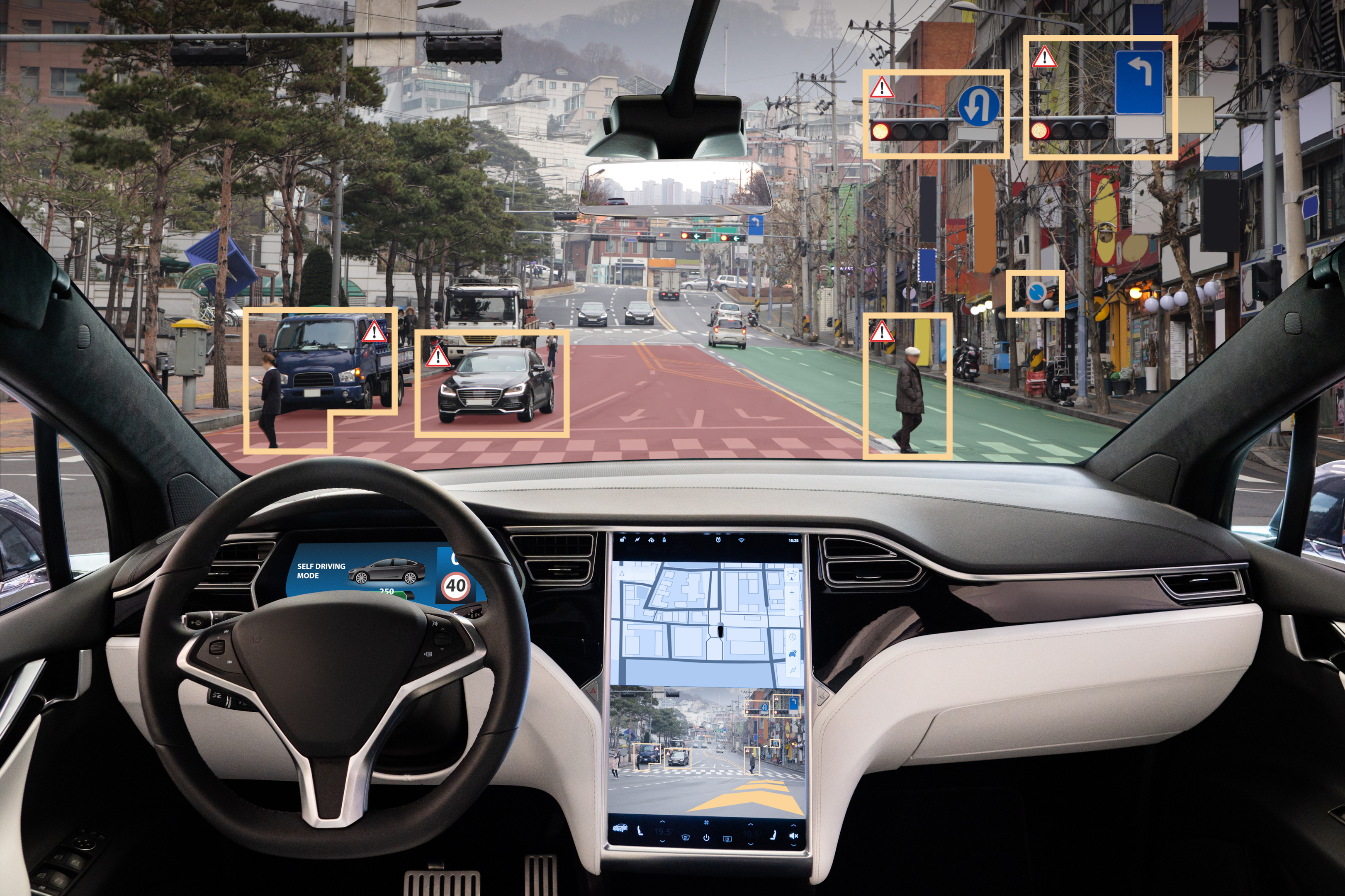
Customer Support and Retail
- Chatboxes and virtual assistants (speech recognition)
- Personalized recommendation systems
- Inventory management and pricing optimization
- Sentiment analysis of customer reviews
Manufacturing
- AI-controlled robots and robotic control systems
- Predictive maintenance and quality control
- Logistics, warehousing, and supply chain management

Gaming
- AI-controlled NPCs and game combatants
- Player experience modeling and dynamic game difficulty balancing
- Data mining on user behavior and monetization
Common job titles for AI Developers
Let’s explore some of the most common AI roles and specializations in the tech industry. While there is a good deal of overlap between these roles, and the nuances vary from company to company, here are the most popular titles to look out for.
Machine Learning Engineer
ML Engineers build AI and ML models and the underlying systems and infrastructure necessary to train and deploy them. They also collaborate with Data Scientists and software engineers to integrate machine learning models into production systems.
- Common languages: C, C++, Python, Java
- Common frameworks: PyTorch, Keras, TensorFlow, scikit-learn

Data Scientist
The typical Data Scientist is part mathematician, part statistician, and part coder. Their job is to take vast amounts of noisy data, both structured and unstructured, and build models to extract insights and meaningful conclusions. With artificial intelligence and many of the above technologies (Machine Learning, Deep Learning, Natural Language Processing…), Data Scientists can build models that make predictions and inform decision-making.
- Common languages: Python, R, SQL
- Common databases: MySQL, PostgreSQL, NoSQL databases (MongoDB, CouchDB, Redis)
- Data Visualization tools: Tableau, Power BI, Sisense, Excel
What’s the difference between a Data Scientist and an ML Engineer?
Typically Data Scientists focus on the models themselves and finding the information they need to determine technical solutions to problems. When the solution is already decided, and implementation and scalability are the critical issues, Machine Learning Engineers put the models into production and fit them into restricted computational resources.
Machine Learning Scientist
An ML scientist creates algorithms, researches new ML techniques, and builds and optimizes ML models. They often possess advanced degrees in fields such as Computer Science, Mathematics, Data Science, or Statistics.

- Common languages: C, C++, Python
- Common frameworks: PyTorch, Keras, TensorFlow, scikit-learn
What’s the difference between Machine Learning Scientist and a Data Scientist?
While in some cases, there may not be much of a distinction, typically, Data Scientists are more focused on extracting insights from data and making decisions based on that data. On the other hand, Machine Learning Scientists are more focused on ML models and tend to be more research-oriented.
Natural Language Processing (NLP) Researcher
A NLP Researcher (see “Natural Language Processing” above) develops methods for machines to process, analyze and generate human language. As NLP intersects with Linguistics, Computer Science and Cognitive Science, NLP Researchers possess a variety of skills depending on field.
Computer Vision (CV) Researcher
A Computer Vision researcher (see “Computer Vision” above) develops algorithms and techniques allowing computers to “see” or process visual information. There are many varied uses of Computer Vision, including autonomous vehicles, healthcare diagnostics, facial recognition, surveillance, and missile guidance.
Data Engineer
A Data Engineer is a software engineer who builds the infrastructure necessary to process and access data. Data Engineers also build virtual “pipelines” between data systems which allow Data Scientists to access this data for analytical or operational purposes.
- Common languages: Python, Java, Scala
- Common areas of focus: Extract, transform and load (ETL) pipelines, data infrastructure, data processing, data ingestion, data streaming
- Common big data technologies: Spark, Storm, Hive, Flink, Hadoop
What’s the difference between an ML Engineer and Data Engineer?
For companies/products with a Machine Learning component, a Data Engineer’s duties can be similar to that of an ML engineer. They typically focus on converting data, so it is useable by the models, or designing and building the infrastructure to put ML models into production.

How to hire AI Developers in 5 steps
Here is our step-by-step guide to finding and hiring AI developers with all the right qualifications.
1. Define the AI skills needed for your company and how they will be applied
Before any company or recruiter starts a search, they need first to define exactly what they are looking for. By starting with the AI skills that are needed to advance a project or application or to optimize a current company process, you’ll be able to outline what the specific job and role will look like.

Crafting a candidate persona can help you understand whom you’re searching for, their motivations, and how to craft your pitches best to pique their interest.
| Persona name: [Xander Miller] | Job Title: [ML Engineer] |
| Education: [MIT, Stanford, Carnegie Mellon, Cornell, UC Berkeley] | Company Experience: [AWS, Databricks, Daitaku, Uber, Twitter] |
| Years of Work Experience: [3-5] | Skills: [Python, Scikit-learn, Theano, TensorFlow, Keras, PyTorch, Pandas] |
| Salary Range: [120-150,000] | Goals: [Wants to architect solutions end-to-end, learn new ML technologies] |
| Values: [Advancing the use of AI in healthcare, Diversity, Open-mindedness] | Pain Points: [Gets bored quickly, wants to work more on ML than data analysis, limited bandwidth for long interview processes] |
2. How to find AI Developers
Here are the most popular options for your team and the factors your team should consider to hire AI developers.
In-house recruiter
Pros: An in-house recruiter is typically a generalist, able to handle the full recruiting process from req to offer. They are also familiar with the culture of your company and may have a deeper understanding of how to be successful in your specific roles.
If you have a consistent demand for talent, this option is more cost-effective than using an agency. With recent big tech layoffs abating the recruiter shortage of the past few years, now may be a good time to find a qualified recruiter to hire.

Cons: Hiring an in-house recruiter requires a higher upfront cost and effort. And during periods of economic uncertainty, your hiring needs may not be consistent enough to support a full-time in-house recruiter.
Tips: Here are the best ways for in-house recruiters to source AI engineers:
- Consider hosting a competition on Kaggle, an open-source Data Science and ML community, or TopCoder, a coding, and Data Science crowdsourcing site for AI software development
- You can find many of the best Artificial Intelligence engineers on sites like GitHub, far and away the most popular place for maintaining code, and Stack Overflow, another popular gathering spot
- Check out pioneering work being done at AI conferences
- Search Medium tags such as Artificial Intelligence for developers posting about AI content or side AI project
Freelance or contract recruiter
Pros: If you don’t have consistent hiring needs, engaging a short-term recruiter can offer more flexibility.
Cons: Freelance and contract recruiters aren’t screened like recruiters at an agency, and may not have the technical knowledge to find the right candidates. In addition, hourly rates are often high, reaching $75-150 per hour.
Tips: Some popular sites for hiring contract recruiters include Toptal and Upwork.
Recruiting agencies
Pros: Recruiting agencies aim to employ experienced recruiters with technical knowledge. And since compensation is based on results, agencies are very motivated to find candidates.
Cons: High fees can be 15-20% of the candidate’s first-year salary – or even more. And unscrupulous agencies may waste your time by flooding you with unqualified AI engineers hoping that something sticks. Most companies are finding the model inadequate to their needs in 2023.

Tips: It is best to find an agency specializing in filling AI and ML roles and a deep understanding of the software industry. Other factors to look for include a thorough screening process and a track record of success.
Hire a freelance or contract AI Developer
Pros: We believe that hiring full-time in-house experienced AI engineers is generally the best approach, particularly for startups. But sometimes, you need the speed and flexibility of a hiring freelancer or contractor — particularly in uncertain economic conditions.
Cons: Freelance and contract developers generally don’t have the opportunity to work on sustained, high-impact projects, and often benefit from less mentorship from experienced developers.
Tips: Some top candidate-sourcing websites to hire AI developers on a freelance or contract basis are Turing, Apollo Technical, and Candidate Labs.
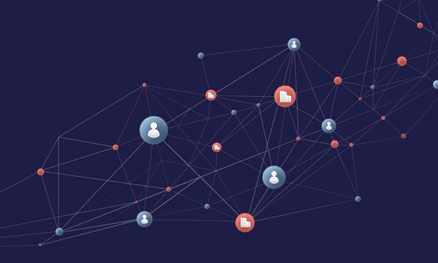
AI sourcing technology to hire Artificial intelligence Engineers
Pros: Artificial Intelligence and Machine Learning solutions offer automated candidate-job matching and outreach, freeing up your team to engage and close candidates.
In addition, this is also the most flexible option on the list, allowing you to scale your recruiting efforts up and down in an uncertain hiring environment and stretch your recruiting budget dollars further.
Cons: Learning new AI sourcing tools can be a significant time investment.
Tips: If you lack that bandwidth, services like Celential.ai can help. All you have to do is sign up for a free trial to start receiving strong ML and AI engineers within 3 days with no effort or learning curve on your part.
3. Know how to write a job description
When it comes to writing a great job description, a little mental reframing is key.

The best JDs aren’t actually neutral descriptions, but rather pitches that grab Artificial Intelligence Engineers’ attention and provide compelling reasons to consider your opportunity. Some points you’ll likely want to highlight include:
- Company mission: why are you doing what you’re doing? What makes you unique and what is your impact?
- Innovative tech stack: most AI specialists got into the field because they want to be at the forefront of the latest and coolest technologies — which new and groundbreaking technologies will they get to use in the role?
- Exciting new opportunities and responsibilities to grow, lead, make an impact, and influence your team’s culture. Many AI developers are excited by the opportunity to take ownership and lead features end-to-end.
- Perks and benefits: some of the most desired benefits of 2023 include flexible work, sustainable work policies, tuition assistance, and wellness programs. As new tech hubs emerge across the country, employers advertising for remote AI engineers will likely have an edge.
Here’s a template that you fill in with the unique details and pitch points of your own roles to successfully attract and hire AI engineers.
AI engineer job description template
[Company] is pioneering an AI-powered approach to [industry]. Using Deep Learning, Natural Language Processing, and other emerging Machine Learning techniques, we are inventing new ways to [company’s mission]. We seek an experienced AI Engineer to design, develop, and deploy AI models and algorithms. You’ll join a team of world-class scientists, engineers, and experts from [top school] and [top company] to help develop our AI strategy and use cutting-edge technologies to drive early-stage solutions.
Responsibilities:
- Design, build and deliver ML solutions; develop and maintain a robust and scalable AI infrastructure
- Analyze large and complex datasets to identify patterns and insights
- Collaborate with internal specialists and product and engineering teams to develop end-to-end AI solutions
- Stay up to date with artificial intelligence trends, state-of-the-art Artificial Intelligence software development tools, programming techniques, market, and competitor landscape
Requirements:
- Ph.D. or Master in Computer Science, Statistics, Mathematics, or a related field
- Strong experience in machine learning, natural language processing, deep learning, graph neural networks, knowledge representation and reasoning (KRR), and data mining
- Experience with AI frameworks such as TensorFlow, PyTorch, and Keras
- Strong programming skills in Python and/or other programming languages
- Experience with big data processing technologies such as Spark, Flink, Airflow, Kafka, Hadoop
Bonus Qualifications
- Strong academic credentials: high-impact journal publications, participation in public conferences, etc.
- Experience with cloud-based platforms (AWS, Azure, GCP)
- Experience with early-stage, high-growth startups or desire to contribute in such an environment
- Exceptional written and verbal communication skills
4. Learn to read AI Engineer resumes
There are a few challenges involved in reading AI developers’ resumes, which may appear to be dense with technical terms and jargon at first glance. Developers come from various educational backgrounds, from mathematics to computer science. And, an AI engineer could be called everything from a Software Engineer to an ML Engineer to a Computer Vision Engineer.

However, by evaluating the projects they have worked on and targeting the right skills and experiences, it’s more than possible for recruiters to evaluate a technical AI developer’s resume effectively.
Let’s take this sample resume as an example.
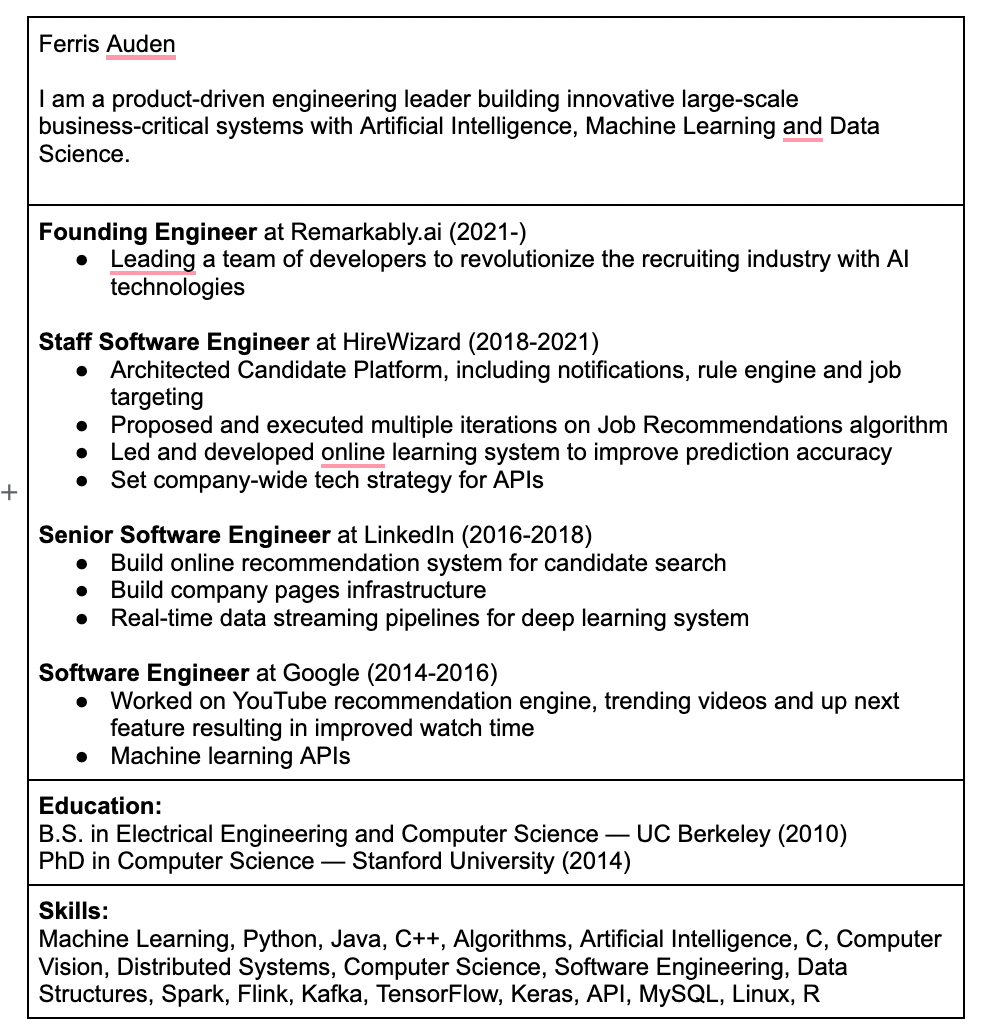
Some positive signals on this candidate’s background include:
- degrees from two strong computer science programs (Berkeley and Stanford)
- strong career trajectory and a consistent record of promotion (to the Senior and Staff level)
- work at multiple selective companies (Google and LinkedIn)
- meaningful accomplishments such as participating in technical leadership and building machine learning systems and infrastructure
This candidate would likely be particularly compelling to startups, as his career trajectory indicates he would be open to and interested in early-stage, smaller AI software development teams.

When it comes to skills matching, this candidate has a versatile set of skills covering Machine Learning (TensorFlow, Keras), Data Science (Spark, Flink, Kafka), and Back-End Engineering (Distributed Systems, API).
5. Write a compelling outreach message
No matter the economic uncertainty, ML and AI tech talent are in high demand, with an unemployment rate of under 2%. When most of the artificial intelligence engineers you may wish to hire are already employed, reaching out to passive talent is key.
Here are 5 key tips to refine your pitch:
- Subject line: The average tech worker receives 121 emails daily, meaning that it’s critical to start pitching from the subject line. Some tips include personalizing the subject line with the potential candidate’s name and including quick pitch points.
Juliette – Remote AI Engineer @A16z backed Healthtech startup, $100M funding

- Personalization: Tech talent is used to receiving irrelevant mass emails from recruiters. To stand out, you can personalize your email to explain why your role fits with their career trajectory, which of their skills are relevant to the role, and how their domain expertise is a good match.
- Compliment: According to science, we are all (even super smart Artificial Intelligence engineers) subject to flattery. By highlighting strengths in a candidate’s background, such as educational history, work at selective companies, awards, or a track record of advancement, you can show candidates that you are paying attention to them and leave them with a positive impression.
- Follow-up: About two-thirds of our candidate replies actually come from follow-up emails, according to our own data. It’s definitely worth sending a follow-up or two! (But don’t send excessive follow-ups — you don’t want to alienate candidates whom you may wish to contact in the future, or harm your company brand).
- Use a proven template: By using our favorite passive candidate email templates that are demonstrated to work, you can boost your reply rate to 30% or more.
We successfully used these techniques at Celential to hire our VP of Artificial Intelligence, Dr. Xu Miao.
“I was impressed by the personalized email for a couple of reasons. He spoke about my prior work and pitched the idea of building something that could change people’s lives. The outreach was quite touching compared to the more bland emails recruiters often send,” said Xu Miao. “I immediately replied to Andrew to set up a meeting.”
6. Know the interview questions and the soft skills to look for
What should you look for when searching for a great AI engineer? Besides strong programming skills and familiarity with AI technologies relevant to your company, it’s equally important not to neglect soft skills.
Soft skills a good AI Developer should have
- Motivation to grow and learn more about AI. Developers that are participating in side projects, entering Kaggle contests on the weekends, attending meetups, posting on AI forums, and publishing blog posts and papers, are likely to be the strongest and most motivated.
- Communication skills. It is a must for AI developers to be able to break down technical concepts clearly to a non-technical audience and articulate their value. Some of the largest barriers to AI adoption include “understanding AI uses and benefits” (41%), “finding use cases” (25%), and “defining the strategy” (25%).
- Business acumen. Most uses of AI — such as process optimization, marketing analytics, and product enhancement — tie directly into business development. Understanding how businesses operate and generate revenue is a prerequisite to leveraging tech to solve key business needs.
- Critical thinking. AI technology is new, complicated, and constantly evolving. An AI developer needs problem-solving skills and the ability to generate, analyze and evaluate various creative solutions.
- Tenacity. Inventing new approaches and creating new products necessitates risk-taking, setbacks, and constant failure. The next generation of technologies will be created by AI engineers who push through the difficulty and refuse to give up in the face of adversity and uncertainty.
Sample questions
With the above qualities in mind, you can use these example questions to evaluate the technical expertise and soft skills of an AI developer.

- Walk me through one of the AI projects you’re most proud of, from ideation to implementation. What was your approach, and what was the result?
- How are you currently advancing your AI knowledge and skills?
- What methods can be used to evaluate the performance of an ML model?
- When would you use weak AI versus strong AI?
- What are some techniques for handling unbalanced data?
- How do you approach developing a language model with a small data set?
- How would you approach designing a product recommendation system?
- Can you name an example of an AI-based product that impressed you?
- What are some of the top technical challenges in the field of AI in 2023? Feel free to reference any recent papers you’ve read or conferences you’ve attended.
- How do you determine whether a problem is ML solvable?
- What is an AI implementation challenge you’ve overcome?
- Can you talk me through an example of a time when you collaborated with or influenced a non-technical business partner?
Wrapping up: How much does it cost to hire an AI Developer?
Though compensation ranges vary due to factors such as geographic location, skills, seniority, company size, and industry, here are some pay data to give you an idea of what a competitive compensation range looks like.
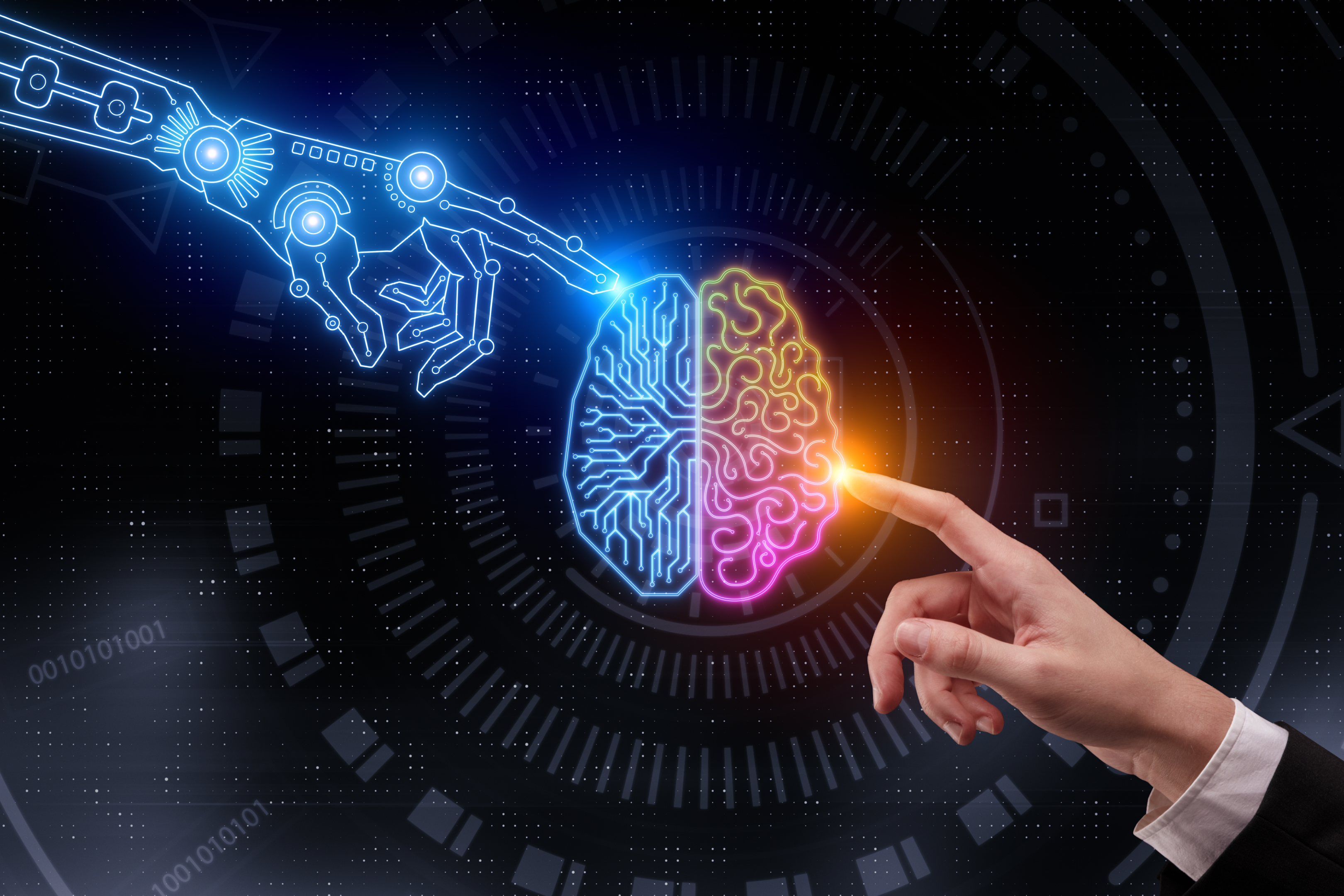
| Title | Average Compensation Range (United States) |
| Machine Learning Engineer | $103,000-$168,000 |
| Computer Vision Engineer | $107,000-$178,000 |
| Natural Language Processing Engineer | $83,000-$126,000 |
| Artificial Intelligence (AI) Scientist | $108,000-$182,000 |
| Artificial Intelligence (AI) Engineer | $101,000-$168,000 |
As companies across all industries discover the rapidly increasing power of Artificial Intelligence, Talent Acquisition teams can turn to AI to source higher-quality candidates on demand for less cost.
Celential.ai was founded by engineering leaders who faced challenges building top-quality, diverse engineering teams at tech companies like Salesforce, VMWare, and Zynga. Realizing that traditional recruiting methods were falling behind in the race for specialized tech talent, they created an Artificial Intelligence sourcing solution.
Once companies sign up, they only need to submit their open roles. They will receive highly qualified candidates for specialized, competitive tech roles like ML Engineer, Deep Learning Engineer, Computer Vision Engineer, NLP Engineer, Data Scientist, Fullstack Developer, Backend Developer, Frontend developer, Data Scientist, and DevOps Engineers within the week.
How is it possible?
Celential’s talent graph consists of over 15,000,000 tech candidate profiles from the US, Canada, Latin America, and India. It aggregates billions of data points and enriches them with ML models custom-built for tech recruiting, to find the most accurate matches to a job description. It then sends hyper-personalized contact messages at scale, cutting through the noise of generic recruiter emails by highlighting in-depth mutual fit.
Schedule a call with one of our product experts to find out how to receive tech and AI talent for up to 50% less cost.
Table of Contents

































Submit a Comment